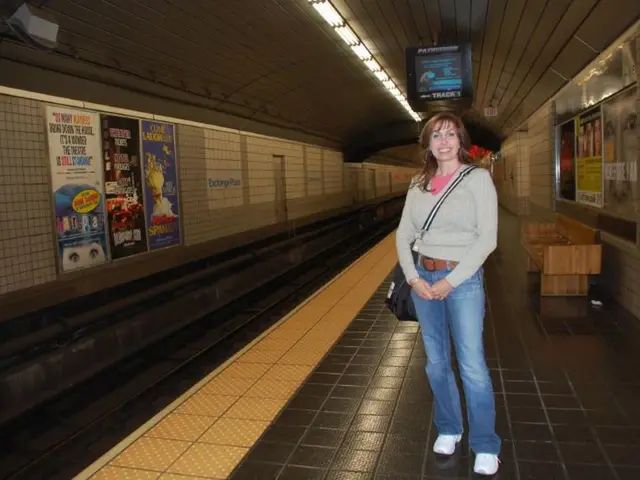Financial deficiency may cause the discontinuation of CTA's round-the-clock public service in Chicago.
In the bustling city of Chicago, the Chicago Transit Authority (CTA), Metra, and Pace public transit systems are bracing for a combined budget shortfall of $771 million in 2026. This looming financial challenge has sparked concerns among commuters and transit leaders alike.
CTA leaders have emphasised the importance of funding in a recent town hall meeting, with Matt, a commuter, expressing his concern about potential service cuts. "It's really a tough detriment to the city," he said, highlighting the impact such changes could have on the daily lives of Chicagoans.
Negotiations regarding this budget deficit will continue as state lawmakers return to session next month. One possible solution under consideration is a 10-cent increase in fare prices for Metra, Pace, and CTA. However, riders find the prospect of a fare increase quite frustrating, with many questioning whether funds might be found by reevaluating priorities.
If the budget deficit is not addressed, service cuts as high as 40% could be implemented. Part of these changes may include limiting CTA bus and rail service lines to operate only between 6 a.m. and 9 p.m. This could result in 9.1 million hours lost by Chicagoans waiting for less frequent bus and rail service, according to estimates.
Illinois is already struggling with transportation funding compared to the rest of the country, and the CTA, Metra, and Pace will increase the passenger surcharge clause to compensate for the $771 million budget deficit in 2026. Negotiations are expected to conclude by the end of 2025.
As the city and its public transit systems navigate this financial challenge, the importance of reliable and accessible public transportation becomes even more evident. Roughly one million people ride buses and trains each day in the Chicagoland area, making it a vital part of the city's infrastructure.
As the situation develops, commuters like Matt and transit leaders will continue to watch closely, hoping for a solution that maintains the city's transportation network while also addressing the budget deficit.
Read also:
- International powers, including France, Germany, and the UK, advocate for the reinstatement of sanctions against Iran.
- Companies urged to combat employee resignation crisis, as per findings from the Addeco Group
- Republicans advocate Trump's domestic policy plans in Iowa, though some business owners remain skeptic
- International discussions on plastic waste management might be shaped by China pledging to reduce plastic production levels.







